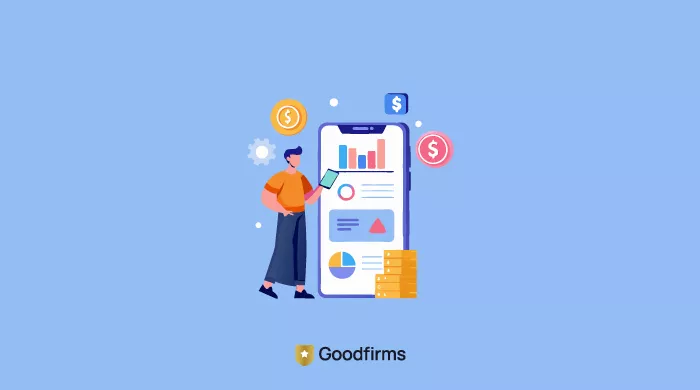No-code app development is becoming more widely used across the technology industry, as companies lean more towards a mobile-first approach across their platforms. But for companies without a large development team or the budget to adapt to the mobile landscape quickly, no-code apps are the perfect fit. They allow companies to hit the ground running, cutting mobile application development time down from months to weeks. In this post, we'll be looking into the benefits of no-code app development along with some unfortunate negative aspects that come with developing an application this way.
What Is No-Code App Development?
Long gone are the days of restrictive website builders. There's a new wave of no-code app development tools on the market, and most of them are visual builders, which means you don't even have to look at code. Most tools will allow you to utilize clever logic or connect to your data source, whether it’s an external database or a Google sheet. If you're not really into coding or like to build things more visually then these tools are for you. But be aware that building complicated applications can be challenging. So, that being said, let's look at the positives and negatives when it comes to going no-code:
Learn Code Practices as You Go
You will learn basic coding practices while building your application with these no-code development applications, even if you are building visually. These apps are building code in the background while you're creating, so if you're visually building an "if” statement then it's still writing the code in the background, and you'll learn how it works. It may even inspire you to look at getting into manual coding.
Own the Code You Develop
Some no-code applications allow you to export your source code from your application, meaning that you own your work. But be careful, as some apps do add a heavy fee for exporting the code. There are many reasons to export the code from these apps, such as enabling you to hand it off to a developer or if you want to add custom functionality that the app doesn't cater for.
Easily Changeable
If something's not working for your users in the app, or your app is taking another direction, then it's fairly easy to change it yourself within the no-code development tool, and it won't charge you for doing so, whereas a developer would charge. As these programs have modular items, it's extremely easy to pull out and replace modules with others or simply rearrange a page.
Simple Deployment
If you've ever experienced submitting to application stores then you'll know the pain of submitting and deploying to Apple's App Store and Google's Play Store. It can be a strenuous and fairly annoying task for experienced and novice developers alike. With no-code applications, they usually come with all of the requirements pre-set which means it's a one-click deployment process - but that doesn't mean Apple or Google can’t refuse to publish the project. Apple's app store policies have become more strict over time.
Reduced Costs From Developers
This is the main benefit of no-code app development - reduced costs of development. Developers are expensive and show no signs of becoming any cheaper to hire as new technologies that need mastering are launched every day. It can also be a daunting task to hire one when you don't understand the lingo around the development. An average Swift developer will cost $30-60 per hour, and it’s a similar but slightly lower price for Android development. You can eliminate this cost by utilizing no-code software to build out your app.
Negatives of No-Code App Development
Honestly, app development cannot shift to a no-code approach completely. Let’s look at the reasons.
Less Understanding
Unfortunately, when building an app through no-code software you'll have a more basic understanding of how applications work and how development functions. It's always good to invest in a development book before setting out on any development project, even if it's no-code development software.
Reduced Scaling
If your app becomes a viral sensation overnight, you may find your app running a lot slower than when you were the only one using it. This can cause user frustration. With these apps, it's difficult to scale as the code is modular and usually tightly integrated into the codebase. If you need to hire a developer, they may want to rip out the generated code and hand-code a new version, which may cost you down the line.
Difficult Migrations
As with reduced scaling, you may find that it's hard to migrate your project over to a Swift or React codebase, or even hard to migrate the database that the no-code app requires when utilizing their system. This could eventually be costly.
Rigid Modules
Modules are brilliant for quick prototyping but become extremely annoying when trying to build anything complex with them. This is the typical moan of anyone developing using a no-code application; the modules supplied are not flexible enough to respond to the specific user need. Unfortunately, no-code applications are typically designed for low prototyping user cases and are not suited for custom functionality.
Conclusion
In conclusion, no-code applications are a great starting-off point. They can help anyone get building an app or learning about development, which is always a great thing. These platforms are usually suited for those looking to create a minimal viable project for their product, a prototype of how the final idea would function. If you're looking to build the next Tinder or Uber, these platforms may not be best suited to your needs and you may have to go down the road of custom development. That said, no-code apps are here to stay and their ecosystem is growing every day. The apps that they can produce are becoming more complex, meaning that one day you could be creating the next Uber - visually.
However, not all applications can be created with a no-code approach. Some with specialized requirements or complex functionalities require the best app developers’ experience and high-level programming. So, contact the right developer now, if you want the best app matching your needs.








